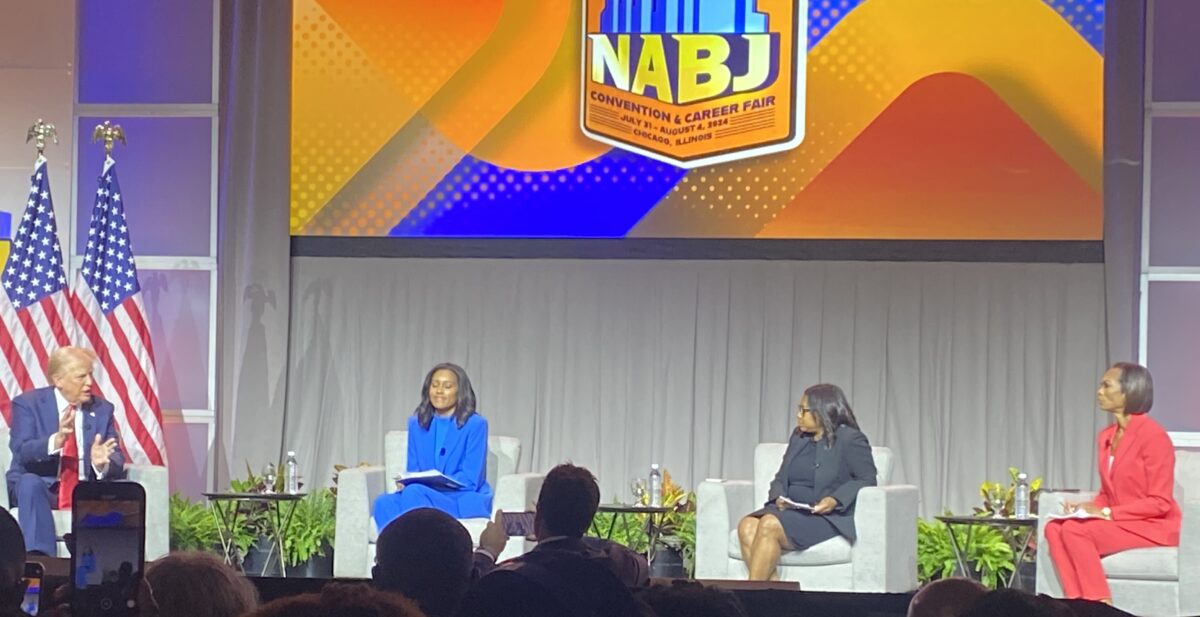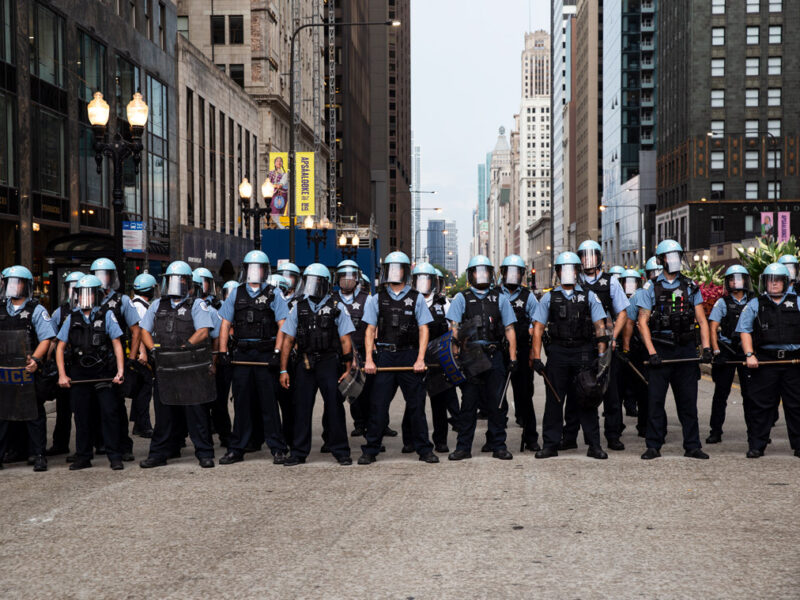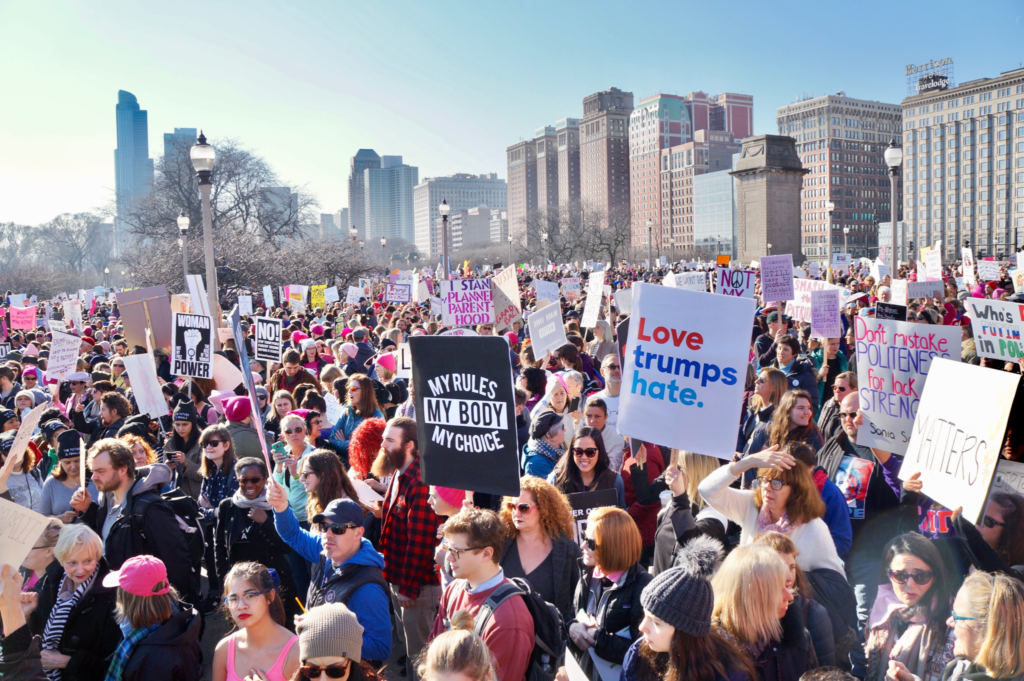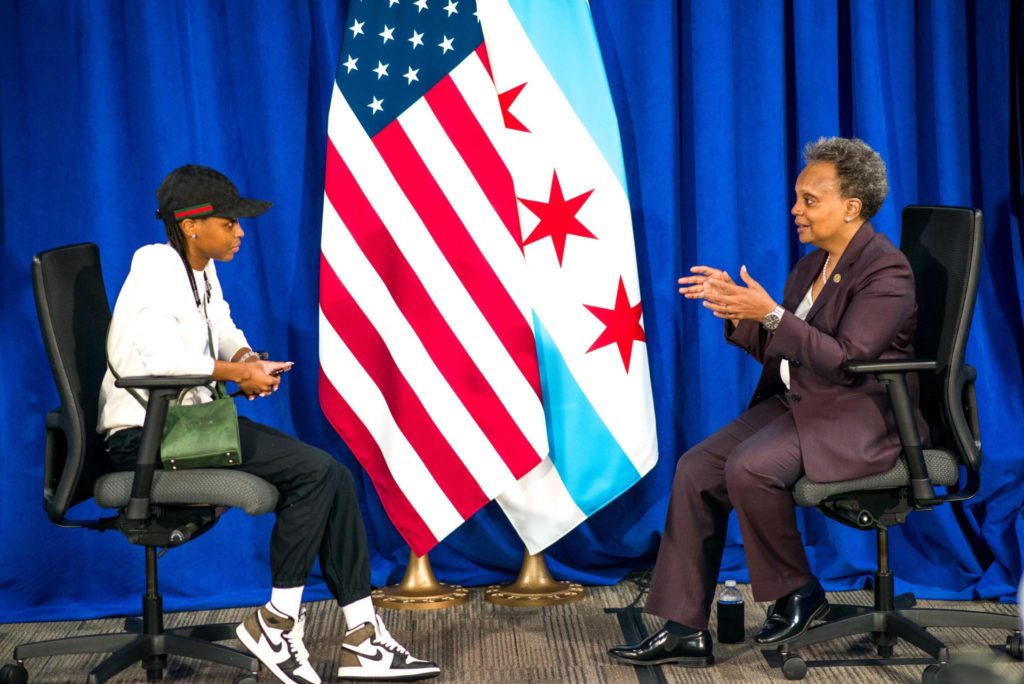Less than forty-eight hours before the National Association of Black Journalists (NABJ) Convention and Career Fair was set to open at the Hilton Chicago, the organization announced that former President Donald Trump would be appearing on the first day in a conversation moderated by three Black women journalists.
The move shocked many NABJ members. It’s not unheard of for candidates, and even sitting presidents, to appear. Last year’s convention in my hometown of Birmingham, Alabama saw President Joe Biden join virtually, and former Presidents Barack Obama, George W. Bush and Bill Clinton have all attended in the past. Trump hadn’t accepted invites to NABJ in 2016 or 2020, so while it was understood that he could be invited again, the late-breaking announcement came as a complete surprise.
Biden’s July 21 exit from the election and his endorsement of Vice President Kamala Harris breathed new life into the Democratic Party. On the first day of Harris’ campaign, she raised a record $81 million as national and local leaders rallied behind her. Former Presidents Clinton and Obama, Illinois Gov. J.B. Pritzker, Cook County Board President Toni Preckwinkle, and Chicago Mayor Brandon Johnson all joined the ranks of Harris supporters in the first week of the campaign.
So it made sense politically that Trump would scramble to attend NABJ in a hasty attempt to appeal to both the Black community and media simultaneously. Trump’s turbulent relationships with both communities have been publicly displayed since well before his 2016 campaign, and only worsened since.
Through much of the week I listened, watched and did my best to understand the moment that we are in. National politics collided with my career and the convention that brought me to Chicago. I’ve had to consider how to reconcile the realities of my identity as a Black man in America with the ideals of journalistic objectivity that have guided much of my career, even in the face of racism, bigotry and hate.
The announcement he’d attend NABJ immediately sparked a social media frenzy among NABJ members and Black Twitter (renamed X) more broadly.
“This is the single dumbest and worst decision in NABJ history,” tweeted conference attendee Carron Phillips. “Whoever made this call is an idiot. And I’ll say it to their face this week.”
Tia Mitchell, Washington correspondent for the Atlanta Journal-Constitution and chairwoman of the NABJ Political Task Force, responded. “I helped make this call,” she tweeted. “And it’s in line with invitations NABJ has sent to every presidential candidate for decades.”
More than 500 responses to Mitchell mostly criticized the decision and wondered how moderators would hold Trump accountable. NABJ would later condemn these attacks. The press release announcing Trump’s visit noted that a fact checker service, PolitiFact, would check the conversation in real time.
In the middle of the scramble leading to Trump’s appearance, Washington Post columnist Karen Attiah resigned from her position as NABJ Convention co-chair, stating she was not involved with platforming Trump at the convention.
The morning of Trump’s visit, the scene at the Hilton was chaotic. The credentialing process started the day before Trump’s talk and many, including myself, were not approved until 9pm. Media began arriving as early as 6am to set up equipment before the Secret Service did a security sweep of the room, forcing media to wait outside for several hours.
Once we took our seats in the ballroom, we waited. And waited. Noon, the scheduled time of the interview, came and went without the former president. Announcements of his impending arrival soon fell on deaf ears, and some in the crowd, growing impatient, began to voice their desire to leave.
Huffington Post deputy editor Phillip Lewis reported that the delay was due to Trump’s team demanding that NABJ abandon its plans to do a live fact check of Trump’s remarks. Lewis quoted an NABJ source who described it as a “standoff.”
After nearly an hour, Trump took the stage. A thin smattering of applause emanated from the mostly silent crowd. A palpable anticipation filled in the room; hundreds of phones were raised to capture the moment. ABC News senior correspondent Rachel Scott, Semafor politics reporter Kadia Goba, and FOX television host Harris Faulkner made up the panel of interviewers. Scott began the interview by asking Trump a direct question on his history with the Black community, Black media and why Black voters should trust him.
“I don’t think I’ve ever been asked a question in such a horrible manner,” Trump responded in what would go on to be a thirty-minute meltdown. The interviewers asked him about Trump ranted at Scott, the crowd, and anyone trying to hold him accountable. He answered few questions directly.
And in a shocking lowlight, Trump challenged whether Harris, who is biracial and has a Black Jamaican father and Indian mother, is in fact a Black person.
The hour passed quickly, most likely because Trump’s team cut the interview short at about thirty-five minutes after FOX contributor Harris Faulkner asked him about Project 2025, a far-right plan to radically change the federal government should Trump win.
The audience went through a rollercoaster of emotions as Trump effectively did nothing to improve his relationship with the Black community or the media. Collective confusion and disappointment filled the room as he walked off stage.
I was sitting behind ABC7 political analyst and Tribune columnist Laura Washington, and we began to discuss what just happened.
“It’s good for NABJ. It’s important to bring Donald Trump and any other presidential candidate to this organization to be held accountable and to give him the opportunity to answer a lot of tough questions,” Washington said. “I think Trump has given people an excuse to discard objectivity and say it doesn’t matter anymore and we don’t have to be fair and balanced.”
Washington said seeing the collective shock at the invitation announcement turn to social-media attacks on other journalists was troubling.
“There is definitely a generational divide. I think part of it is that older journalists think of things traditionally…. They aren’t necessarily comfortable with change, whereas younger journalists are,” she said. “I think perhaps younger journalists are more willing to be advocates and voices for the Black community and they see themselves that way. They don’t apologize for it.”
Layla Jones is an economic equity reporter for The Philadelphia Inquirer who attended this year’s NABJ and the Trump interview.
“I still somehow managed to feel shocked by the way that Trump immediately attacked ABC reporter Rachel Scott and the language that he used, though it is language that he often uses towards media and Black women,” Jones said. “I think that, as media, our jobs are to tell the truth, to be truth tellers, to shine light in darkness.”
Jones emphasized the need for live fact checking, citing Trump’s inaccurate claims on abortion and questioning of Harris’ race.
Tiffany Walden, co-founder and editor-in-chief of The TRiiBE, said she saw Trump’s presence as lack of situational awareness.
“There’s Black women on this stage and so I was not prepared for him to, straight out the gate, start berating Rachel Scott,” Walden said. “My entire row was just like we could barely breathe. We were just like, ‘Is this real life?’”
Walden said that the approach to Trump’s visit should have been different given his track record. “You can’t interview an atypical person the same way that you would interview a normal person,” she said. “This man is not George Bush and he is not Barack Obama.”
Trump’s conference appearance came up at an event hosted by Public Narrative at Semicolon Bookstore, 400 N. Michigan Ave, the following day. TRiiBE co-founder and publisher Morgan Johnson was featured alongside voices from True Star Media, the Invisible Institute, and the Chicago Defender.
“Do Black people in journalism not know what’s at stake right now?” Johnson asked the dozens at the event. “Project 2025—there’s language in there that the president should have total control over the FCC, so total control over the media, total control over the internet. Our jobs literally could just not exist anymore if he comes into power.
“I don’t know what it’s going to take for everybody to understand just how dangerous Donald Trump is,” she continued. “We keep covering him like he’s a circus act.”
Yohance Lacour is a writer for the Invisible Institute and host of the Pulitzer Prize and Peabody Award winning “You Didn’t See Nothing” podcast.
“Why are you inviting the lyncher to the crib? It’s a problem and everybody isn’t necessarily in a place to speak out on these things,” Lacour said. “We at war, man. This shit is real.”
Michael Liptrot is a staff writer for the Weekly and the Hyde Park Herald.





This is next-level pearl clutching.